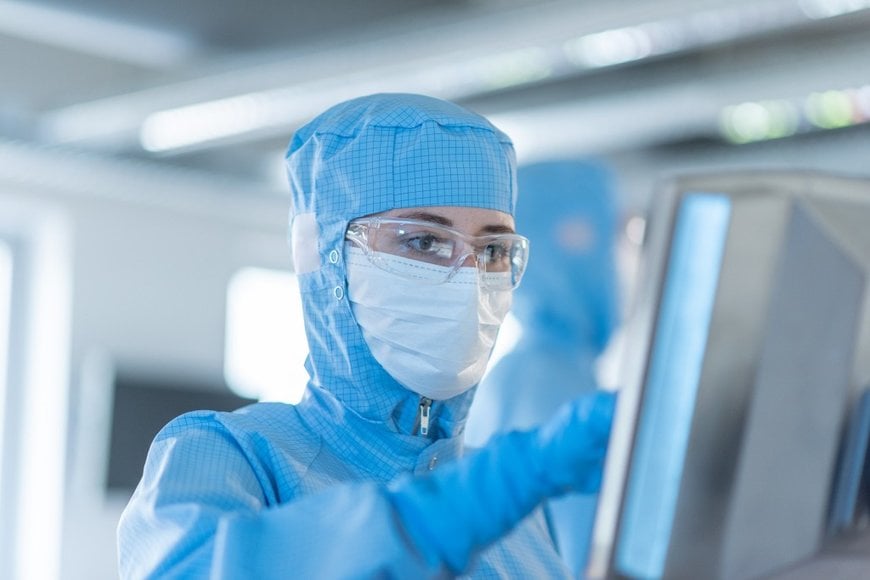Realizing the digital transformation in the process industries
At the "Achema Pulse" live digital event, Siemens will be demonstrating how the combination of the real and the digital worlds empowers industrial companies to act in a versatile and sustainable manner.

At the "Achema Pulse" live digital event, Siemens will be demonstrating how the combination of the real and the digital worlds empowers industrial companies to act in a versatile and sustainable manner.
- Focus on combining the real and the digital worlds
- IIoT: Data-based algorithms increase operational efficiency of plants
- Process optimization and modularization as the key to success
Companies in the process industry are facing urgent and rapidly changing challenges. The Covid-19 pandemic in particular has transformed demand patterns and global supply chains virtually overnight. At the same time, industry-specific regulations and standards are creating new framework conditions for production. Digitalization and automation are the levers for mastering these changes. Industrial IoT solutions can exploit the resulting data to secure a competitive advantage since the intelligent analysis, understanding and utilization of the data allows companies to adapt their processes faster to changing requirements. The Siemens Digital Enterprise portfolio makes this possible by combining the real world with the digital world, thus enabling solutions for simulation, virtual processes, remote access and connectivity as well as presenting service offerings for digital transformation. Thanks to the corresponding industry-specific know-how, individual sector requirements can be taken into account.
Focus on industry-specific solutions
"Achema Pulse is a great opportunity to providing impulses to our costomers and gaining insights on how we can implement the digital transformation together. There will be a special emphasis on the pharmaceutical and chemical industries, and we look forward to sharing our expertise in these areas," says Eckard Eberle, CEO of Siemens Process Automation.
For companies in the pharmaceutical industry, winning the race against time is now more important than ever. Siemens is helping pharmaceutical companies accelerate their production setups with the help of digitalization and automation. One example is the Mainz-based biotechnology company BioNTech SE which has converted an existing facility in Marburg for the production of the Covid-19 vaccine in record time with assistance from Siemens. Through collaboration with Siemens and the team of experts on site in Marburg, the project timeline for converting the existing facility for the production of mRNA-vaccine was cut from around one year down to five months, whereby the implementation of key parts of the new Manufacturing Execution System (MES) was reduced to two and half months.

A holistic view of the vaccine development process as well as digitization of the entire value chain bring vaccines to the patient faster.
In the future, the digital twin can be increasingly used in vaccine development. Global healthcare company GlaxoSmithKline (GSK) is collaborating with digitalization expert Siemens and digital transformation leader Atos to digitalize its vaccine development and production process using the digital twin. As the first application for testing, GSK, Siemens and Atos have developed a proof-of-concept digital twin specifically for the development and manufacturing of adjuvant technologies. Using mechanical models and artificial intelligence (AI), the partners developed a hybrid model to simulate and monitor the process.
As such, the digital twin links the process parameters to the quality of the adjuvant, with the sensors and process analytical technology (PAT) feeding the twin with the information needed to predict the quality of the product. Any deviation from the optimal quality is anticipated and causes the twin to act on the process parameters and rectify them to satisfy the target specifications. In the next step, GSK wants to work with Siemens to support its vision to establish and introduce new digital twins for the entire vaccine development process for new vaccines. Thus, the digital twins of product, production and performance will be linked together.
In the chemical industry, the biggest challenges lie in the fact that plants must run reliably and safely. The "Siemens Digital Worker" is a concept that allows operating personnel to digitize and automate work in the field using state-of-the-art technologies such as augmented reality (AR) and virtual reality (VR). This approach supports the user in the digitization of workflows in process plants and in paperless processing, promoting remote access thanks to electronic documentation, access information and guidance by intelligent devices. Against this backdrop, specialty chemicals company Lanxess continues to drive forward digitalization in its production plants. Over the next three years, the specialty chemicals company will introduce mobile operations and maintenance.
In a first step, around 400,000 paper-based operations and maintenance checklists used every year will be replaced by digital equivalents, then filled out on tablets. Lanxess is supported by Siemens to digitize its checklists. For this, Siemens uses the Moby.Check software that runs on tablets and can be controlled using either the keyboard or voice commands. Moby.Check has a flexible operating concept allowing users to create production, servicing and maintenance checklists on their PC – without any programming work or training in advance. In addition to more efficient processing, the error rate of manual transmission can be reduced, and documentation simplified. The Siemens Digital Worker supports the transformation from analog to digital workflows and can also exploit the potential of the digital twin in the field. Applications based on AI contribute to higher plant availability through the early detection of anomalies. And predictive maintenance planning means that outages and routine maintenance work are avoided.
As a specific offering for the chemical and oil & gas industries, Siemens offers not only the explosion-proof motors of the Simotics XP series, but also motors of the Simotics SD series for environments without explosion hazard in the Chemstar version. They are equipped with pre-configured chemical-specific options. Both motor series, available with options, operate reliably and energy-efficiently even under extreme conditions and offer all relevant certificates.
Modularization as the key to meeting new requirements with ease To meet the demands of short innovation cycles and adaptations to new product portfolios, systems must be quick and easy to expand. The prerequisite for this are standardized, cross-vendor interfaces for the efficient configuration, communication and integration of modular plants. An interface of this type is defined in the MTP (Module Type Package). This protocol defines the information technology aspect of process models or plant sections in such a way that they can easily be integrated into a comprehensive automation solution, for example the Simatic PCS neo web-based process control system. The modules are assembled to form an overall process, facilitating their monitoring and control. At Achema Pulse, the example of the cooperation between Siemens and Merck will demonstrate how a modular production plant based on MTP minimizes engineering effort and permits fast and versatile process adaptations.
New IIoT solutions for faster data transmission and reliable data acquisition
"As part of the digital transformation, new trends are emerging in the process industry, which we are driving with our solutions and innovations," explains Eberle. "We regard 5G as one of the most important technologies in the industrial IoT context. It means we can transfer data quickly and reliably over powerful communication networks to exactly where it is needed. This makes production plants more flexible, autonomous and efficient." Scalance MUM856-1 is the first industrial 5G router from Siemens.
With its wireless connectivity, the robust Sitrans MS200 Multisensor forms the hardware basis for the collection of vibration and temperature data in mechanical system components. Via a Bluetooth connection, the data is sent to the Sitrans CC220 industrial gateway where it is encrypted before being transmitted from there to the cloud. Sitrans SCM IQ has an anomaly detection feature which is based on machine learning. It constantly monitors and analyzes all sensor values and swiftly detects any deviations from the intended operating state. Via the app, anomalies in plant behavior can be documented for immediate distribution to alert a predefined group of users. The Sitrans SCM IQ system comprises multisensors, gateway and app, and can be used in all industrial plants with mechanical or rotating system components. Scheduled to be available from summer 2021, it allows previously unused data from field devices to be used for the preemptive identification and prevention of imminent device failures in advance, thus reducing maintenance costs and avoiding unplanned downtimes.
Sustainability as a guiding principle
As Eberle emphasizes: "Our offer not only meets the requirements of our customers, it also constitutes a contribution to sustainability." Accordingly, Achema Pulse will also be offering sessions on the topics of chemical recycling and sustainability.
www.siemens.com

